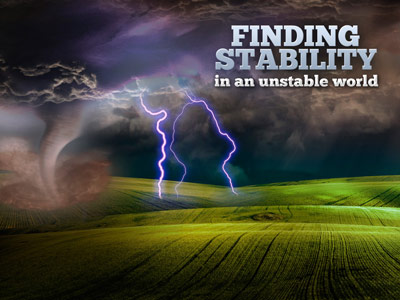-
The Path Of Promise Series
Contributed by Brian Williams on Oct 14, 2025 (message contributor)
Summary: Life is not about us. God is just looking for ordinary people who are willing to surrender their lives to Him so that His name will be lifted up in the earth.
Today in our Dust to Life series in Genesis, we are coming to the close of Jacob’s journey back to his hometown, Hebron, the home of his father Isaac and grandfather Abraham. On the way there, Jacob meets the God of the house of Bethel where God, once again, reassures Jacob, now called Israel, of the covenant promise and the blessing waiting for him and his descendants.
However, even though Israel was a changed man with a covenant promise from God, it didn’t spare him of the sorrows awaiting him on this path to promise. Let’s read from:
Genesis 35:16-29
16 Then they journeyed on from Bethel; but when there was still some distance to go to Ephrath, Rachel began to give birth and she suffered severe difficulties in her labor. 17 And when she was suffering severe difficulties in her labor, the midwife said to her, “Do not fear, for you have another son!” 18 And it came about, as her soul was departing (for she died), that she named him Ben-oni; but his father called him Benjamin. 19 So Rachel died and was buried on the way to Ephrath (that is, Bethlehem). 20 And Jacob set up a memorial stone over her grave; that is the memorial stone of Rachel’s grave to this day. 21 Then Israel journeyed on and pitched his tent beyond the tower of Eder.
22 And it came about, while Israel was living in that land, that Reuben went and slept with his father’s concubine Bilhah, and Israel heard about it.
Now there were twelve sons of Jacob 23 the sons of Leah were Reuben, Jacob’s firstborn, then Simeon, Levi, Judah, Issachar, and Zebulun; 24 the sons of Rachel were Joseph and Benjamin; 25 and the sons of Bilhah, Rachel’s female slave, were Dan and Naphtali; 26 and the sons of Zilpah, Leah’s female slave, were Gad and Asher. These were the sons of Jacob who were born to him in Paddan-aram.
27 Jacob came to his father Isaac at Mamre of Kiriath-arba (that is, Hebron), where Abraham and Isaac had resided.
28 Now the days of Isaac were 180 years. 29 Then Isaac breathed his last and died, and was gathered to his people, an old man of ripe age; and his sons Esau and Jacob buried him.
As we have been reading through Genesis and throughout the Scriptures for that matter, you may ask, “Why is the Bible so focused on dysfunctional families and quiet on harmonious ones?” Because, most families aren’t harmonious, people aren’t harmonious because we were all alienated from God and each other. This is a recipe for a hot mess as we see in this passage.
Even if we have made our peace with God and are part of His family, it doesn’t exempt us from having to face:
? Joys and Sorrows
? Twists and Turns
? Transitional Moments
What were some of Jacob’s:
1. Joys and sorrows
Rachel had been the absolute love of Jacob’s life. From the first day he met her, he had been crazy about her, single-handedly moving the stone from the well’s entrance so she could water her sheep. Then volunteering to work seven years for her hand—and laboring seven more years on top of that! He had shared the pain of her barrenness and the unexpected joy of Joseph’s birth. How sweet it was when she conceived again, and especially because it took place in the Promised Land! Though she was well along in her pregnancy, neither she nor Jacob expected any trouble when they left Bethel to travel south to Hebron where Israel’s father Isaac lives. This was their time to rejoice, but somewhere, just a few miles north of Jerusalem, tragedy fell.
As Rachel is giving birth, she experiences hard and severe labor pains. The midwife knows she is dying and was trying to comfort her by letting her know she was giving birth to a second son. In other words, God was answering the prayer that she prayed while giving birth to her first son Joseph (Gen 30:24). How ironic that as Rachel was bringing a new life into the world hers was ebbing away. As Rachel was breathing her last she named him Ben-oni (which can be translated: son of my sorrow, pain, or deception). But Jacob named him Benjamin, which can be translated - son of my oath, of my strength or right side.
What I find interesting in this passage is that they loved each other but as she is dying they are arguing over a name. There is no other conversation, no record of Jacob's emotional response to the death of his beloved wife. What might be going here in these last moments? Why these names?
Several ancient rabbis suggested there is a message being communicated behind these last moments. If you remember back when Jacob escaped from Laban his wife Rachel had stolen her father’s idols. Once Laban realized the idols were gone, he chased Jacob and accused him of stealing his gods. Jacob reacts angrily, and responds:

 Sermon Central
Sermon Central



